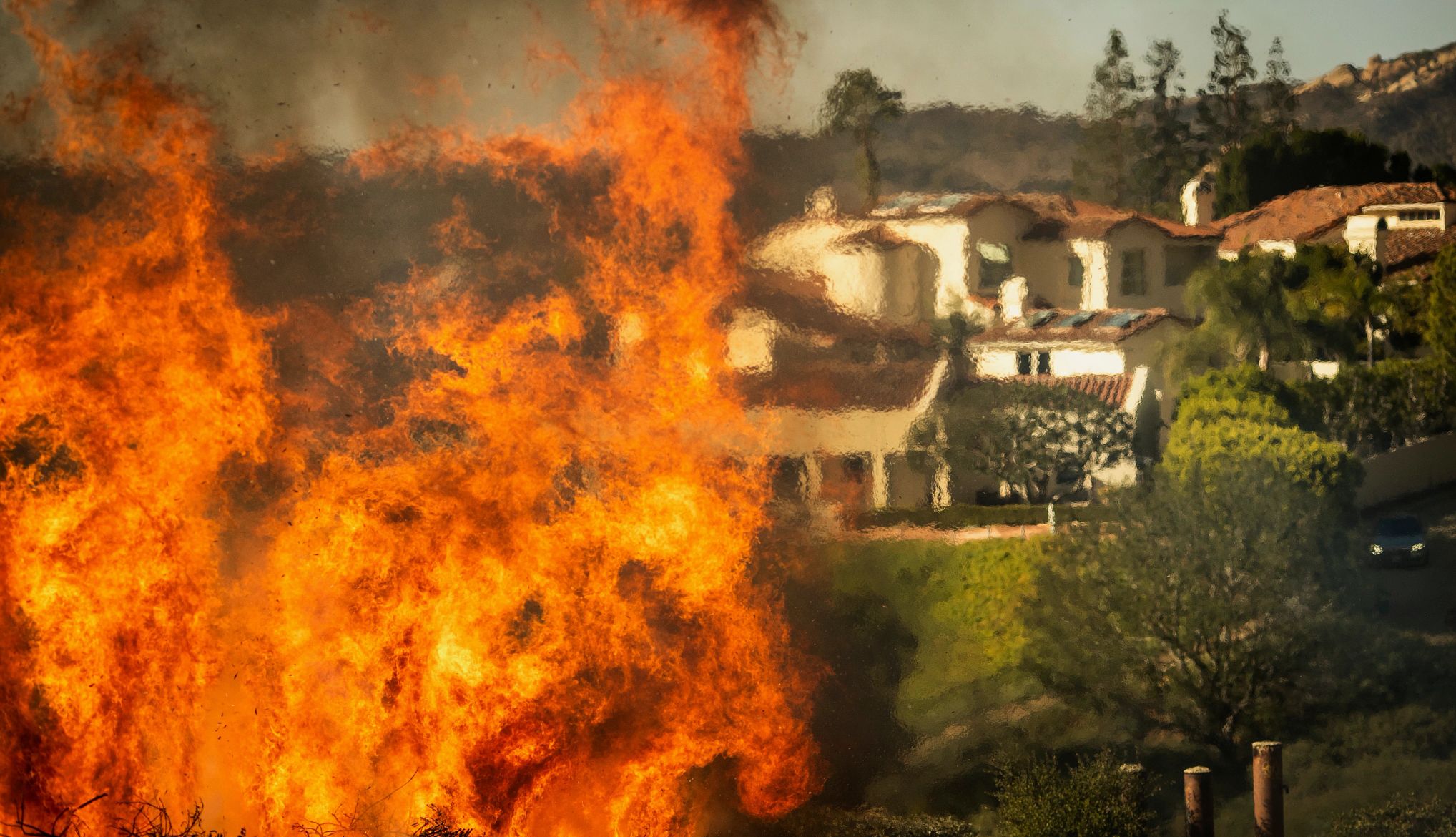
How to speed up a home insurance claim after a flood, fire or other disaster
- Select a language for the TTS:
- UK English Female
- UK English Male
- US English Female
- US English Male
- Australian Female
- Australian Male
- Language selected: (auto detect) - EN
Play all audios:

Fierce wildfires were blazing across parts of Los Angeles on Jan. 8, causing authorities to issue mandatory evacuation orders for around 30,000 people. The flames threatened more than 10,000
homes. Following such a natural disaster, you might find yourself struggling with your insurer to cover damage to your home and its contents. But you can reduce the chances of insurance
battles, both beforehand and during a crisis. Take these steps to help speed up payments after a fire, flood or other disaster. KNOW YOUR COVERAGE Review your homeowners or renters insurance
policy to verify which claims can be reimbursed. In addition to losses from fire and smoke, standard policies cover damage caused while putting out a fire. If a disaster leaves your home
uninhabitable, these policies also reimburse you a certain amount for living expenses, such as rent or hotel bills, restaurant meals and transportation. PRO TIP: Set up time with your
insurance agent or a representative from your insurer to talk through disaster scenarios unique to your home and property. What coverage would you have if wind knocked that maple tree in
your front yard onto your home? If a fire is caused by human error? If a leaky old pipe damages a wood floor? Sometimes talking it out is easier than deciphering a policy’s fine print.
Video: 3 Things to Do Before Retiring to the Shore FOCUS ON FLOODING This is key: Most home insurance policies do not cover flood damage. For that, whether you own or rent, you must purchase
a private flood policy. Homeowners, generally speaking, can get up to $250,000 in coverage for the structure itself; owners and renters can get up to $100,000 in coverage for the home’s
contents. For more information and links to companies selling insurance in your area, go to the government website FloodSmart.gov. Be aware: After a storm that includes high winds, rain
_and_ flooding, expect insurers to dispute the true cause of the damage, in hopes that the other insurer is on the hook to pay up. The presence of flooding may make it difficult to convince
your insurer to pay your claims, as Jennifer Hauber discovered. In September her rental home on Florida’s Sanibel Island was hard hit by Hurricane Ian, which caused wind and rain damage, as
well as flooding from storm surge. Hauber, who had renters coverage, filed a claim for losses to her personal property. But citing the flooding, the insurer has so far denied her claim,
saying the damage was not covered. She has received only a $250 check to cover the spoiled contents of her refrigerator. “I’ve made repeated phone calls, but the insurance company won’t
review my claim,” she says.
